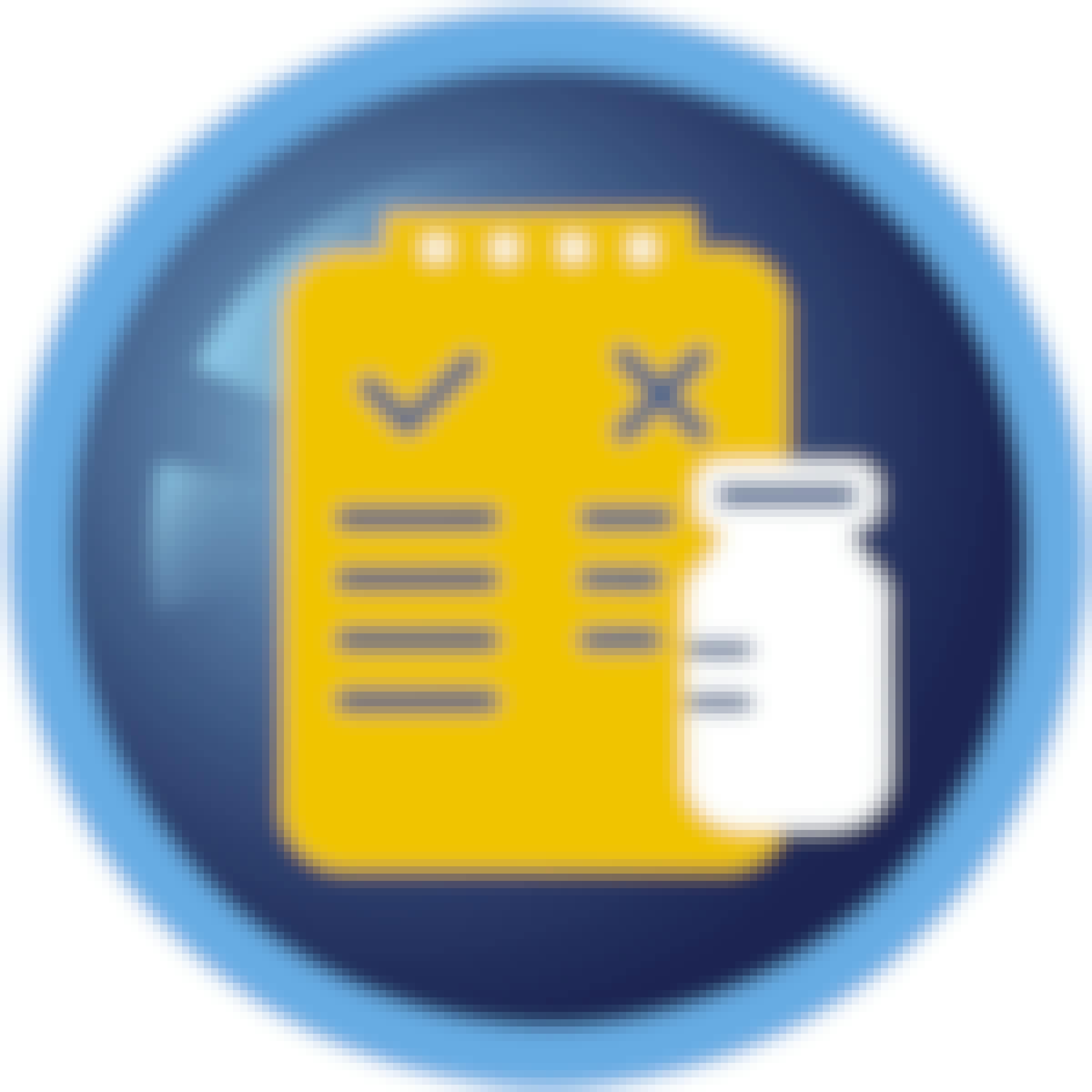Filter by
SubjectRequired
LanguageRequired
The language used throughout the course, in both instruction and assessments.
Learning ProductRequired
LevelRequired
DurationRequired
SkillsRequired
SubtitlesRequired
EducatorRequired
Explore the Safety Course Catalog
 Status: NewStatus: Free Trial
Status: NewStatus: Free TrialSkills you'll gain: Infection Control, Medical Support, Medical Surgical Nursing, Health Assessment, Health And Safety Standards, Patient Safety, Patient Education and Support, Patient Treatment, Public Health and Disease Prevention, Health Care, Healthcare Ethics, Nursing, Clinical Nursing, Health Care Procedure and Regulation, Community Health, Healthcare Industry Knowledge
 Status: NewStatus: Free Trial
Status: NewStatus: Free TrialUniversity of Alberta
Skills you'll gain: Conflict Management, Team Leadership, Organizational Leadership, Diversity and Inclusion, Leadership and Management, People Management, Rapport Building, Leadership, Occupational Safety And Health, Leadership Development, Communication, Professionalism, Collaboration, Strategic Leadership, Safety Culture, Stress Management, Empathy, Employee Engagement, Mental Health, Compassion
 Status: New
Status: NewCoursera Instructor Network
Skills you'll gain: Clinical Nursing, Nursing and Patient Care, Patient Education And Counseling, Nursing Process, Patient Evaluation, Health Assessment, Treatment Planning, Patient Safety, Care Management, Nursing Practices, Communication, Infection Control, Acute Care, Prioritization, Collaboration, Project Documentation

University of Maryland, College Park
Skills you'll gain: Cyber Risk, Cyber Security Policies, Security Management, Cybersecurity, Risk Management, Cyber Security Strategy, Cyber Attacks, Cyber Governance, Infrastructure Security, Telecommunications, Computer Security Awareness Training, Threat Detection, Enterprise Security, Security Awareness, General Networking, Data Security, Vulnerability, Public Safety and National Security, Governance, Political Sciences
 Status: NewStatus: Free Trial
Status: NewStatus: Free TrialUniversity of Alberta
Skills you'll gain: Safety Culture, Diversity Equity and Inclusion Initiatives, Stress Management, Organizational Leadership, Industrial and Organizational Psychology, Occupational Safety And Health, Employee Performance Management, Trustworthiness, Culture Transformation, Team Leadership, Strategic Leadership, Leadership, Employee Engagement, Resilience, Mental Health, Empathy, Communication
 Status: Free Trial
Status: Free TrialJohns Hopkins University
Skills you'll gain: Patient Safety, Continuous Quality Improvement (CQI), Health Systems, Health Care Procedure and Regulation, Accident Prevention, Health Care Administration, Health Information Management, Risk Management, Project Management, Key Performance Indicators (KPIs), Problem Management, Strategic Leadership, Data Analysis Software
 Status: NewStatus: Free Trial
Status: NewStatus: Free TrialUniversity of Alberta
Skills you'll gain: Stress Management, Mental Health, Diversity and Inclusion, Personal Development, Cultural Diversity, Self-Awareness, Emotional Intelligence, Communication, Mindfulness, Empathy, Resilience, Occupational Safety And Health, Industrial and Organizational Psychology
 Status: NewStatus: Free Trial
Status: NewStatus: Free TrialJohns Hopkins University
Skills you'll gain: Clinical Trials, Pharmacology, Pharmaceuticals, Clinical Research, Epidemiology, Health Care Procedure and Regulation, Statistical Analysis, Regulatory Compliance, Patient Safety, Real Time Data, Data Analysis Software
 Status: NewStatus: Free Trial
Status: NewStatus: Free TrialSkills you'll gain: Blood Collection, Phlebotomy, Medication Administration, Healthcare Ethics, Automated External Defibrillator, Cardiopulmonary Resuscitation (CPR), Medical Emergency, Emergency Medicine, Emergency Departments, Respiratory Care, Pathology, Acute Care, Patient Safety, Hospice, Emergency Response, Infection Control, Critical Thinking and Problem Solving, Decision Making, Critical Thinking
 Status: NewStatus: Free Trial
Status: NewStatus: Free TrialJohns Hopkins University
Skills you'll gain: Clinical Research, Pharmaceuticals, Clinical Trials, Pharmacology, Research Design, Health Policy, Epidemiology, Research Methodologies, Research, Statistical Methods, Real Time Data, Statistical Analysis, Regression Analysis
 Status: NewStatus: Free Trial
Status: NewStatus: Free TrialSkills you'll gain: Vital Signs, Patient Evaluation, Health Assessment, Patient Education And Counseling, Blood Pressure, Mental and Behavioral Health, Patient Treatment, Clinical Experience, Triage, Clinical Nursing, Nursing, Patient Safety, Healthcare Industry Knowledge, Respiration, Medical Surgical Nursing
 Status: New
Status: NewBanco Interamericano de Desarrollo
Skills you'll gain: Stakeholder Engagement, Natural Resource Management, Environmental Policy, Environmental Social And Corporate Governance (ESG), Environmental Resource Management, Environment and Resource Management, Community Development, Corporate Sustainability, Labor Compliance, Risk Management, Land Management, Mitigation, Occupational Safety And Health, Governance Risk Management and Compliance, Cultural Diversity
In summary, here are 10 of our most popular safety courses
- Infection Prevention & Wound Care: Clean Practice Essentials: Immersify
- How to be a People Leader: University of Alberta
- Nursing Fundamentals: Skills for Patient Care Excellence: Coursera Instructor Network
- Cybersecurity for Everyone: University of Maryland, College Park
- Creating a Workplace People Want to Be: University of Alberta
- Quality and Safety in Ambulatory Healthcare Management: Johns Hopkins University
- Becoming Your Best Self at Work: University of Alberta
- Drug Development and Regulation: From Bench to Bedside: Johns Hopkins University
- Every Second Counts: Advanced and Emergency Clinical Skills : Immersify
- Comparative Effectiveness and Real-World Evidence: Johns Hopkins University










